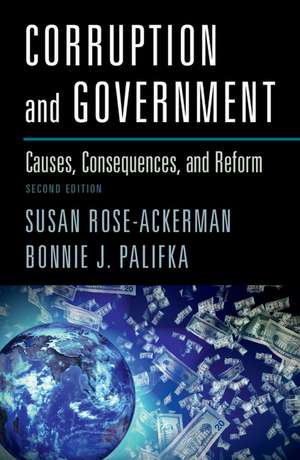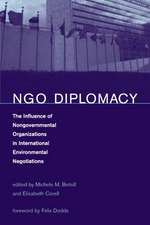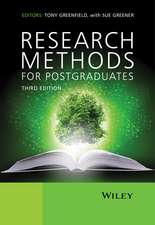Corruption and Government: Causes, Consequences, and Reform
Autor Susan Rose-Ackerman, Bonnie J. Palifkaen Limba Engleză Paperback – 6 mar 2016
| Toate formatele și edițiile | Preț | Express |
|---|---|---|
| Paperback (1) | 355.36 lei 6-8 săpt. | |
| Cambridge University Press – 6 mar 2016 | 355.36 lei 6-8 săpt. | |
| Hardback (1) | 983.88 lei 6-8 săpt. | |
| Cambridge University Press – 6 mar 2016 | 983.88 lei 6-8 săpt. |
Preț: 355.36 lei
Nou
67.100€ • 71.14$ • 56.49£
Carte tipărită la comandă
Livrare economică 03-17 aprilie
Specificații
ISBN-10: 1107441099
Pagini: 644
Ilustrații: 33 b/w illus.
Dimensiuni: 152 x 230 x 35 mm
Greutate: 0.86 kg
Ediția:Revizuită
Editura: Cambridge University Press
Colecția Cambridge University Press
Locul publicării:New York, United States
Cuprins
Introduction; 1. What is corruption and why does it matter?; Part I. Corruption as an Economic Problem: 2. Bureaucratic corruption; 3. Corruption in procurement and privatization; 4. Reducing incentives and increasing costs; 5. Civil service reform and bureaucratic reorganization; 6. Using the criminal law to deter bribery and extortion; Part II. Corruption as a Cultural Problem: 7. Culture and corruption; Part III. Corruption as a Political Problem: 8. Politics, corruption, and clientelism; 9. Organized crime, corruption, and money laundering; 10. Corruption in post-conflict state building; 11. Democracy: corruption, connections, and money in politics; 12. Accountability beyond the ballot box; Part IV. Reform Agendas - Domestic Political Will and International Influence: 13. Domestic conditions for reform; 14. The role of the international community; 15. The role of international cooperation: states, firms, banks, and organized crime; Part V. Conclusions: 16. Conclusions.
Recenzii
'A timely update to a classic, including many new insights from the burgeoning field of corruption research. The new and improved edition of Corruption and Government is essential reading to anyone interested in the problem of corruption, and what to do about it.' Raymond Fisman, Slater Family Professor in Behavioral Economics, Boston University
'When first published in 1999, Corruption and Government was a pioneering achievement that instantly became a landmark book, defining many of the central themes for research in this area. This new edition is nothing but a real 'tour de force'. Rose-Ackerman's powerful political-economic approach is expanded into several new areas such as organized crime and corruption in post-conflict societies. A wealth of recent empirical studies that are presented for illuminating the analysis and the discussion of possible reform agendas also makes this a highly relevant book for the expanding international anti-corruption regime.' Bo Rothstein, Blavatnik School of Government and Nuffield College, University of Oxford
'Its engaging and confident presentation of the fundamentals of corruption made this book a standard reference in any informed discussion about the problem. This second version keeps focus on what institutional structures produce incentives for administrative and political corruption, while the reader also learns how corruption research and law enforcement have expanded (and stagnated) over the last fifteen years. The book is a must-read for anyone seriously interested to learn what it takes to fight corruption.' Tina Søreide, Norwegian School of Economics
Descriere
The second edition of Corruption and Government updates Susan Rose-Ackerman's 1999 book to address emerging issues and to rethink old questions in light of new data. The book analyzes the research explosion that accompanied the fall of the Berlin Wall, the founding of Transparency International, and the World Bank's decision to give anti-corruption policy a key place on its agenda. Time has vindicated Rose-Ackerman's emphasis on institutional reform as the necessary condition for serious progress. The book deals with routine payoffs and with corruption in contracting and privatization. It gives special attention to political corruption and to instruments of accountability. The authors have expanded the treatment of culture as a source of entrenched corruption and added chapters on criminal law, organized crime, and post-conflict societies. The book outlines domestic conditions for reform and discusses international initiatives - including both explicit anti-corruption policies and efforts to constrain money laundering.












